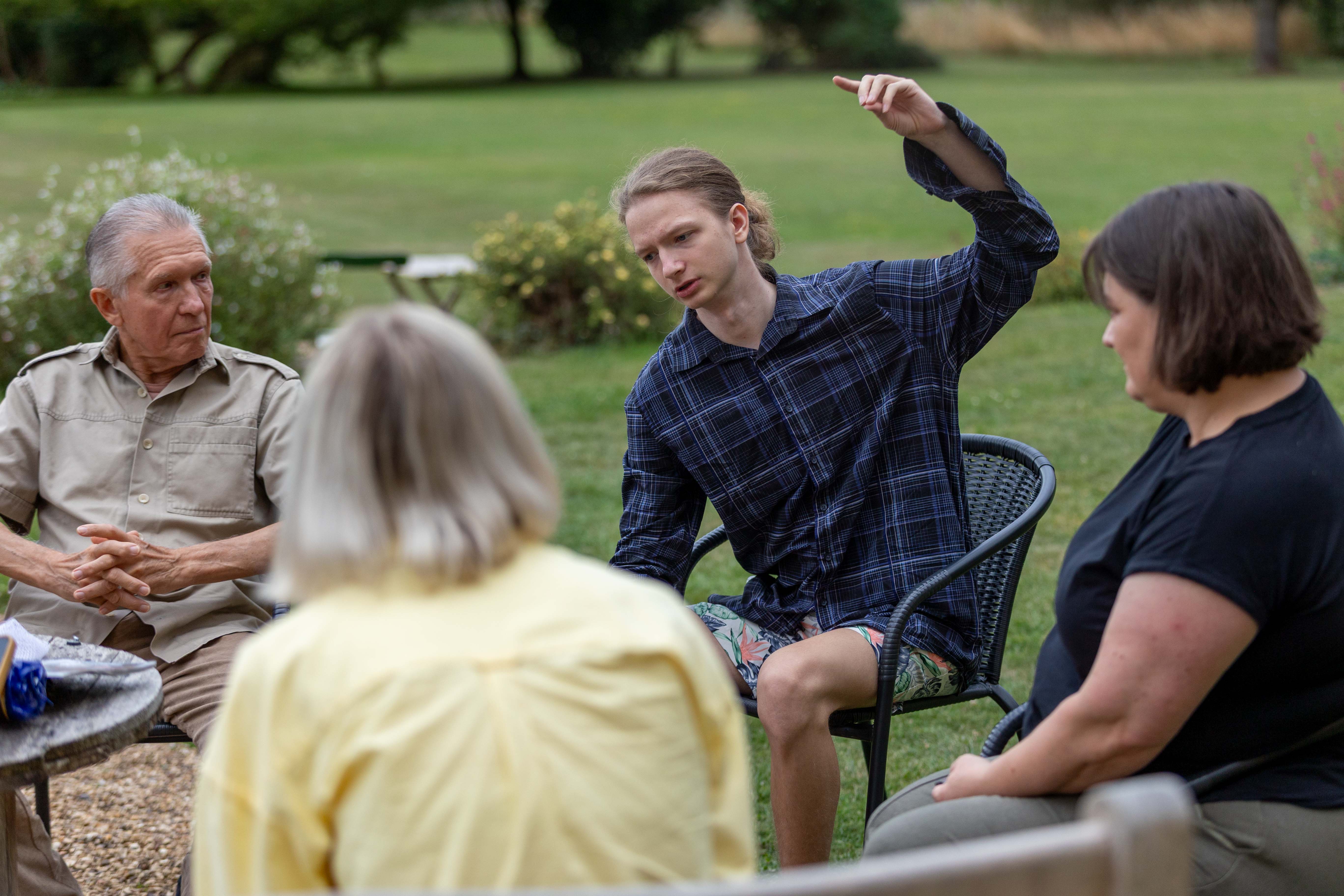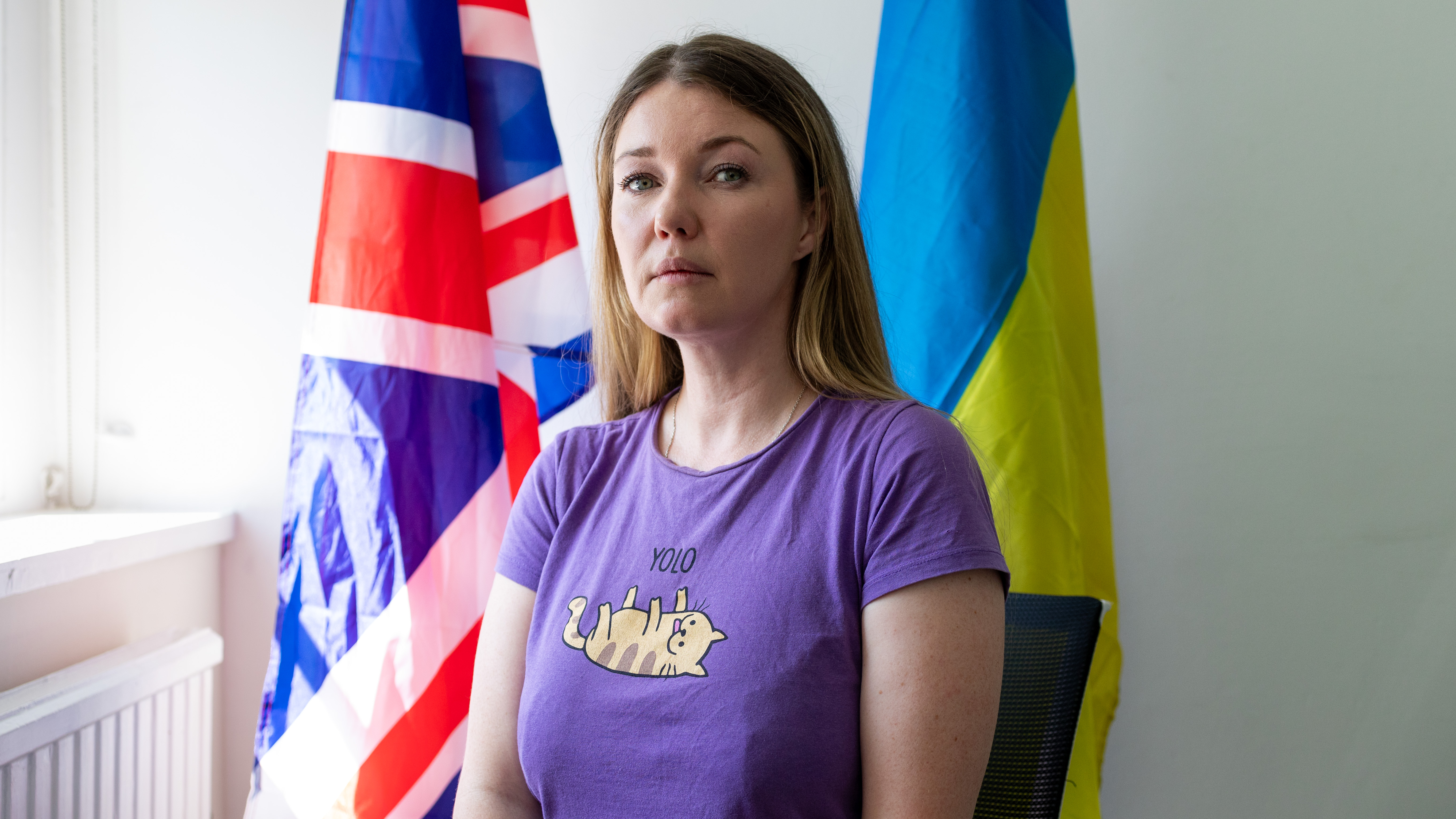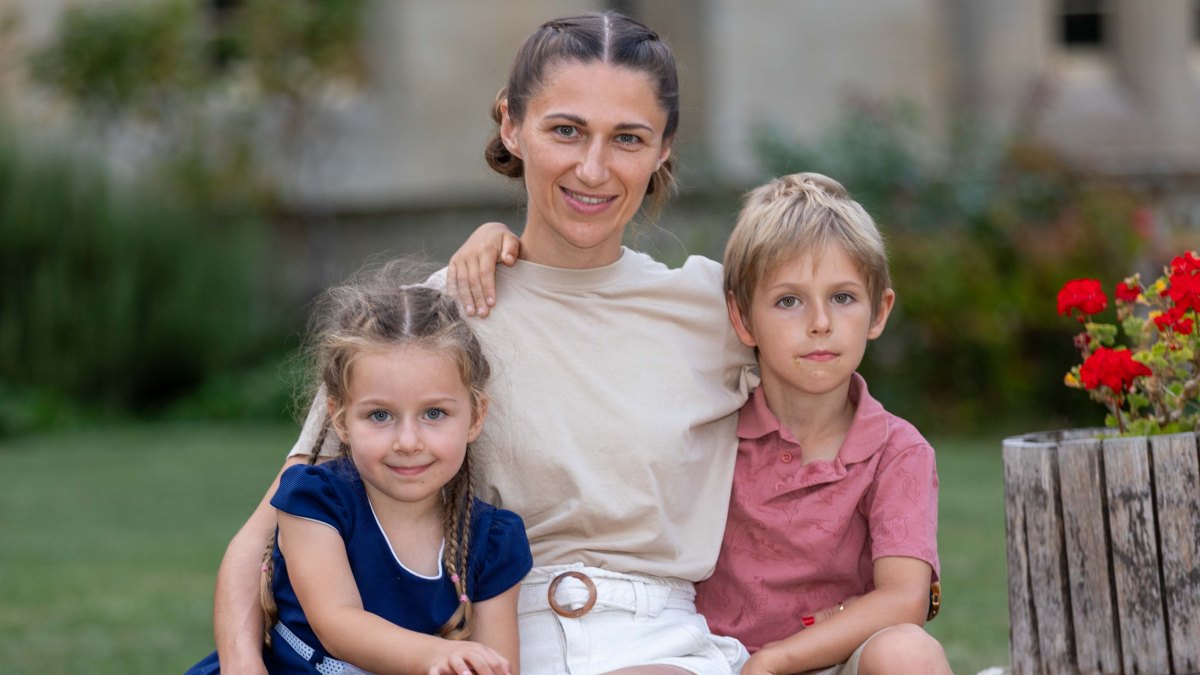When the war began, Olha Kozub, from Vinnytsia in central Ukraine, thought it would all be over in a few months. Instead, she has been in Lincolnshire since May 2022.
She has lost loved ones — including a nephew killed on the battlefield — and agonises over whether to return. “I have decided three times to go back, almost bought a ticket,” Kozub, 37, said. “Then when I fall asleep I dream ten times that I die in my sleep so I think it’s not the time.”
The Putin-Trump meeting in Alaska has done nothing to clarify the situation. “This summit felt like a performance,” she added. “Putin’s speech was a pure psychological game, designed to project that he had ‘won’ the talks.”
More than a quarter of a million Ukrainians in Britain have faced a similiar decision over the past three years. Between February 2022 and the end of March this year, 272,945 visas were granted under schemes allowing Ukrainians escaping the war to come to the UK. About 92,800 (42 per cent) of those had since left the UK, although some may return. In a survey by the Office for National Statistics in April last year, 68 per cent of respondents said they intended to remain here.
According to the Migration Observatory based at Oxford University, as of June last year Buckinghamshire had had the most arrivals — 1,905 — while 1,073 had arrived in Greenwich, southeast London, under sponsorship schemes.
One of those is another woman called Olha, 38, from Donetsk, who did not want to give her surname because she still has family friends there. She cannot foresee a world in which she is able to return home — to the city of her birth or to any other part of Ukraine. “I have dreams: I would like to speak my language, make jokes,” she said. “But I understand it’s only a dream. I cannot sleep safely with my daughter, even in Kyiv.”
Veronika Shliakova, 25, lives near by and supports other displaced Ukrainians in London. Before the war she was a journalist in Kharkiv, 20 miles from the Russian border. The Putin-Trump summit only reinforced what Ukrainians already knew, she said. “The US and Europe must remember who they are dealing with. Russia has no record of keeping promises. They take what they want regardless of the cost.”

Veronika Shliakova was a journalist before the war
JOSHUA BRATT FOR THE SUNDAY TIMES
President Zelensky’s exclusion from the summit, she said, negated the possibility of a proper deal being struck. “Ukraine has to be a part of the conversation. How can Trump negotiate the territories of a sovereign country, which is the only victim in this situation, with the aggressor?”
She added: “People in Kharkiv joke that life must go on because the rockets fire too close for sirens to give enough warning to get to shelter. I was visiting the city when a rocket hit a coffee shop. It had the wall blasted out, no windows.” When she passed two hours later, they had resumed serving coffee as the bodies were removed, realising nothing could be done.
Anna, 22, also moved to Greenwich following the Russian invasion. February 24, 2022, was supposed to be her first day back at university in Kharkiv after Covid but, instead, it was the start of the war. “The troops were already on the other side of the city when I woke up,” she recalled. She and her parents escaped. “My father’s family in the occupied area tried to escape but they hit a mine. They all died. For me, 18 years old, I realised, ‘Oh, something is really happening in this world,’ and it’s not what I had hoped for in my early twenties.”
In the garden of South Rauceby Hall, a country home near Grantham, Lincolnshire, displaced Ukrainians from central and western regions of the country expressed frustration at the direction of the peace process.
Borys Olivakumov, 21, and his mother, Maria, were the first Ukrainians to arrive in Lincolnshire on April 1, 2022. Originally from Dnipro, he has just finished a mathematics degree at the University of Lincoln. “It’s stupid that the US took charge of these negotiations without Zelensky,” he said. “Just two people with huge egos talking over each other.”

Borys Olivakumov, 21, completed a maths degree in the UK
TERRY HARRIS FOR THE SUNDAY TIMES
Larysa, 40, was a dentist in Volyn, near the border with Poland. In 2022, she and her husband moved to Grantham through the Homes for Ukraine scheme along with her son, 13, and two-year-old daughter. She still dreams of returning home but anticipates challenges even if a deal can be reached. “There is a lot of support,” she said, “we are very grateful to the UK but we do want to go home. But we now don’t understand what we might face, with price inflation, poor mental health.”
With little indication given in Alaska as to what a potential peace deal might look like, Ukrainians in Greenwich offered suggestions of their own. Olesia Ralchuch, 32, from Kyiv, has only been in the UK for two months. She said: “The only effective way to stop this war is to provide Ukraine with military support and reduce Russia’s revenues from oil.”

Olesia Ralchuch, 32, and, below, her fellow refugee Anna Kuznetsova, 38
JOSHUA BRATT FOR THE SUNDAY TIMES

JOSHUA BRATT FOR THE SUNDAY TIMES
They differed on whether any form of Trump’s “land swap” might be an acceptable way forward.
Mykola Dmytruk, 72, and Anna Kuznetsova, 38, from western Ukraine, said they felt “calm” about the prospect of ceding the Donbas region, most of which is already occupied by Russian forces. Kuznetsova said: “What else can we do? What else is left to do? Donbas was basically already taken in 2014.”
Dmytruk’s concern, he said, was for the living: “My son is in the army. The most important thing is people — protecting them, stopping any more loss of life.”
